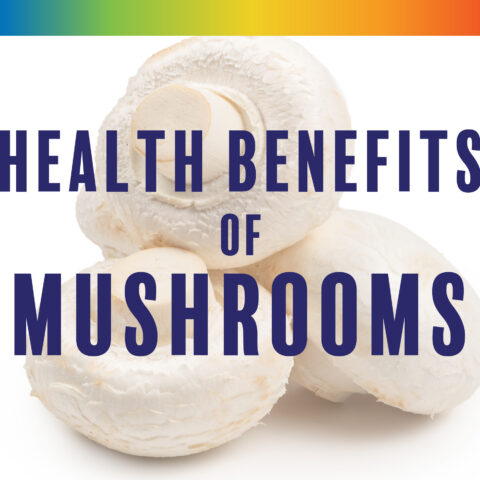Free Play: The Essential Ingredient

We live in a world of schedules and structure. But what if we took the time to let go of our rigorous plan for the day, and just play? Turns out that there are some pretty big risks involved when we start over-scheduling. Stress, diminished creativity, depression, and burnout are just the tip of the iceberg when we have too much going on.
So what can you do to offset the drawbacks of a busy schedule? Free play might be the answer. Here’s what it is, and how to incorporate it into your life.
What Is Free Play?
Remember when you were a kid, and you went outside just to play? Sometimes you even went out not knowing what you were going to do that day; you just rolled with what the outdoors provided and went from there.
That experience is a prime example of free play as a child, and it’s incredibly important for their development. In fact, the importance of play is becoming recognized so much that the United Nations Commission for Human Rights has declared it to be the right of every child. [1]
In essence, free play is unstructured leisure time. For adults, it can look similarly: going on a hike without a destination, “freestyling” a workout rather than sticking to specific movements, or indulging in a spontaneous short road trip, just because.
It’s simple, but that doesn’t mean that it’s easy. With so many things going on in our lives, it’s no wonder we have little time to be completely spontaneous.
And what about learning opportunities? Shouldn’t we be doing something (even play) that’s structured to be productive?
The Dangers of Not Having Enough Free Play
As a society, we’ve become pretty obsessed with productivity. We have a tendency to transform any time off (like our lunch breaks) into productivity sessions of reading or listening to podcasts.
While it’s great to schedule time for self-improvement and learning, we miss out on having unstructured free time. Here are just three of the drawbacks of scheduling away all of our free time.
Loss of Creativity
Over-structuring activities can be compared to driving on a one-lane highway with guardrails: it also trains the mind to think purely in straight lines.
This is especially true for children, who are in crucial cognitive development years. If they aren’t given time for creative freedom, their thought process runs the risk of becoming rigid rather than elastic.
In fact, a report published by the American Academy of Pediatrics pointed to multiple studies showing that when kids are shuffled from one activity to the other, they lose some ability to create and imagine on their own. [2]
Too much structure can have a similar effect on adults. When we don’t provide our brains with the time and space to free-roam without barriers, our thinking can also become overly structured and accustomed to not thinking outside of the box.
Burnout
Another downside of a busy schedule: exhaustion. When there are no days or even small spaces between tasks or activities, it’s easy to become overwhelmed and unmotivated.
One survey showed that roughly two-thirds of full-time employees experience burnout, highlighting the effect this type of full-time structure can have. [3]
Depression, Anxiety, and Other Mental Health Issues
Studies also show that as children have been given less free time to play in favor of more adult-directed activities, anxiety, depression, and feelings of helplessness have increased. [4]
Researchers believe that these problems stem from a person’s lack of control over their lives.
How does this link to free play? For kids, it allows them the opportunity to take ownership of their own thoughts and reactions outside of adult direction. The outcome of unstructured play is similar for adults—it helps combat a feeling of helplessness.
Benefits of Scheduling Free Play
“Nothing lights up the brain like play,” said Dr. Stuart Brown, founder of the National Institute for Play, in a fascinating TED talk. “Three-dimensional play fires up the cerebellum, puts a lot of impulses into the frontal lobe—the executive portion—[and] helps contextual memory develop.” [5]
Free play can truly enhance our cognition. When we play without all of the variables being controlled, our brains are essentially thrust into a natural learning environment. For children, playing without adult controls allows them to creatively solve problems on their own, instead of consistently being shown one particular way. For adults, jumping into new forms of play (be it a sport or board game) essentially teaches the brain how to solve different problems from different angles, deeply nourishing out-of-the-box thinking.
Play also plays a huge role in fostering:
- Collaboration and empathy. Playing with others involves paying attention to social cues, listening, sharing, and working together. Whether you’re an adult or child, play is one of the best areas to learn (or relearn) these traits. For adults, it can feel rewarding simply to collaborate with a team.
- Physical and mental health. Typically, playing means getting outside, and getting outside means getting more vitamin D from sunlight. Vitamin D deficiency plays a huge role in many diseases ranging from Parkinson’s and cancer to depression and diabetes. [6] In addition, free play in nature may also reduce stress and cortisol levels, which could help with managing weight. [7]
- A positive mood and healthy relationships. Getting enough exercise and sunlight can boost your mood, and the spirit of collaboration and creativity can then translate that into improved relationships.
How to Incorporate Free Play
Now, the impulse here is probably to … schedule free play.
While it’s perfectly fine to schedule time for play, Dr. Brown also states that play isn’t just an activity we do 30 minutes after school or work—it’s an attitude we carry throughout the day. [8]
The idea is to leave room for spontaneous play throughout yours and your child’s day (i.e., try to avoid over-scheduling) and let activities flow more naturally. For children, this would look like keeping non-school time less busy and pressured, providing fewer “toys” (this will actually encourage creativity and outside play), and limiting screen time.
For adults, this could mean opening up your schedule for spontaneity, limiting your own screen time, and getting outside. It can also mean driving home a different way or taking a new route on your evening walk.
Still struggling? Try thinking back to when you were a kid. Perhaps you liked to draw or paint, and you never had a scheduled time to do it. It’s time to dig out those old art supplies and paint away!
When you integrate more play into your life, you can reap significant mental and physical health benefits for both you and your kids.
References
[1] United Nations Human Rights Office of the High Commissioner. https://www.ohchr.org/en/professionalinterest/pages/crc.aspx. (accessed October 7, 2020)
[2] Kenneth R. Ginsburg, the Committee on Communications and the Committee on Psychosocial Aspects of Child and Family Health. “The Importance of Play in Promoting Healthy Child Development and Maintaining Strong Parent-Child Bonds.” Pediatrics, Vol. 119, Issue 1, January 2007, doi: https://doi.org/10.1542/peds.2…
[3] Ben Wigert and Sangeeta Agrawal. “Employee Burnout, Part 1: The 5 Main Causes.” Gallup. https://www.gallup.com/workplace/237059/employee-burnout-part-main-causes.aspx. (accessed October 7, 2020)
[4] Peter Gray. “The Decline of Play and the Rise of Psychopathology in Children and Adolescents.” American Journal of Play. Vol 3, Number 4, Spring 2011, https://www.psychologytoday.co…
[5] Stuart Brown. “Play is more than just fun,” presented at TEDex Serious Play, May 2008.
[6] Rathish Nair and Arun Maseeh. “Vitamin D: The “Sunshine” Vitamin.” Journal of Pharmacology and Pharmacotherapeutics. Vol 3, April-June 2012, doi: 10.4103/0976-500X.95506
[7] Harvard Health Publishing. “A 20-minute nature break relieves stress.” Harvard Medical School. https://www.health.harvard.edu/mind-and-mood/a-20-minute-nature-break-relieves-stress. (accessed October 7, 2020)
[8] Therese Borchard. “Go Out and Play! Why You Shouldn’t Stop Acting Like a Kid.” Everyday Health. https://www.everydayhealth.com/columns/therese-borchard-sanity-break/why-play-is-important-for-mental-health/. (accessed October 7, 2020)
Megan Patiry
Megan Patiry is a freelance writer specializing in ancestral nutrition. She has personally followed a Paleo-style, ancestral style of eating for over a decade.
More About The Author




